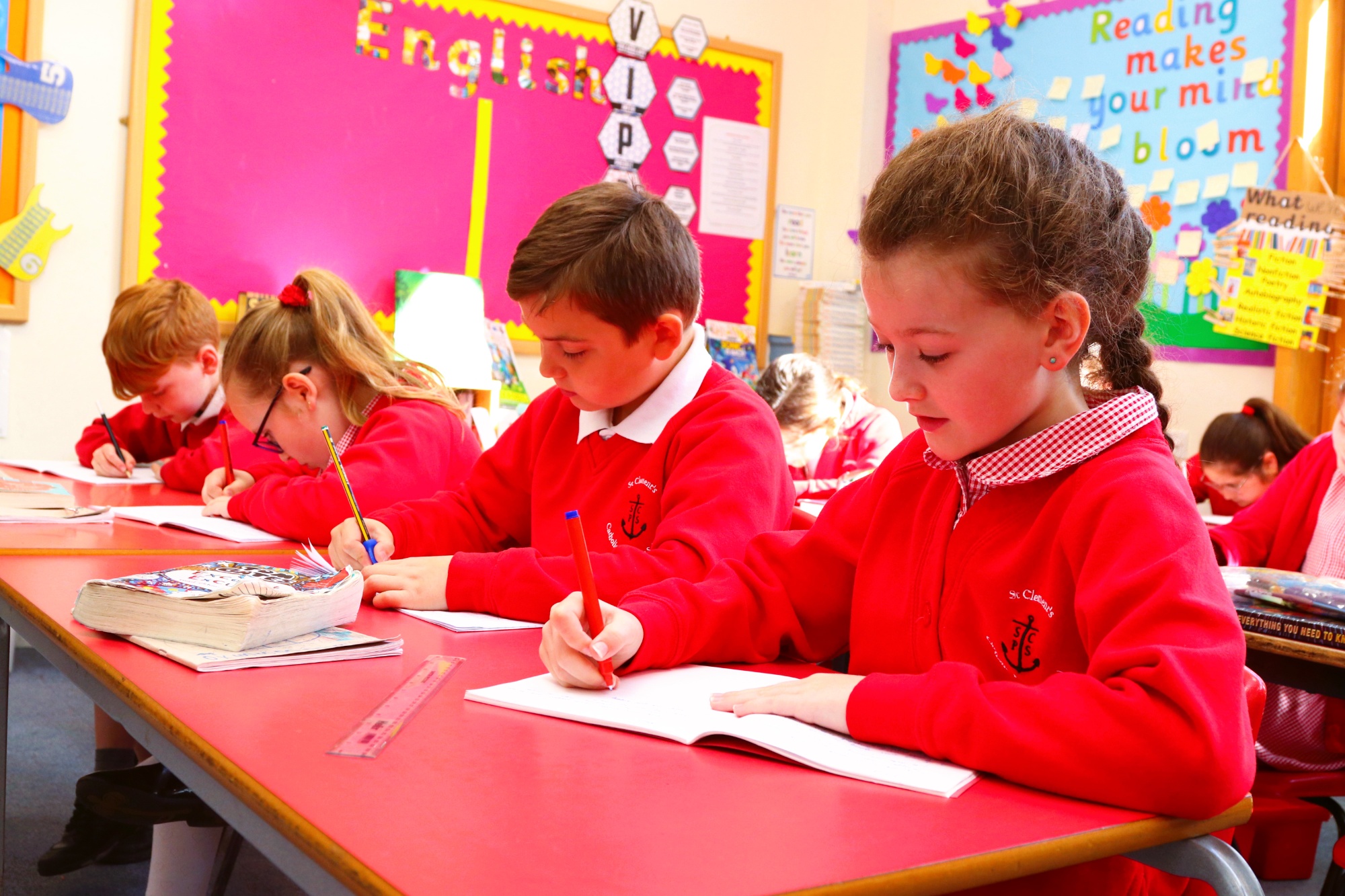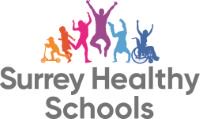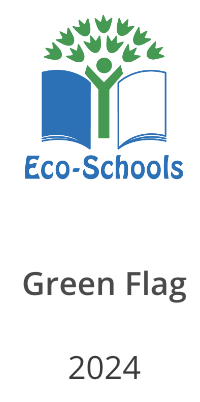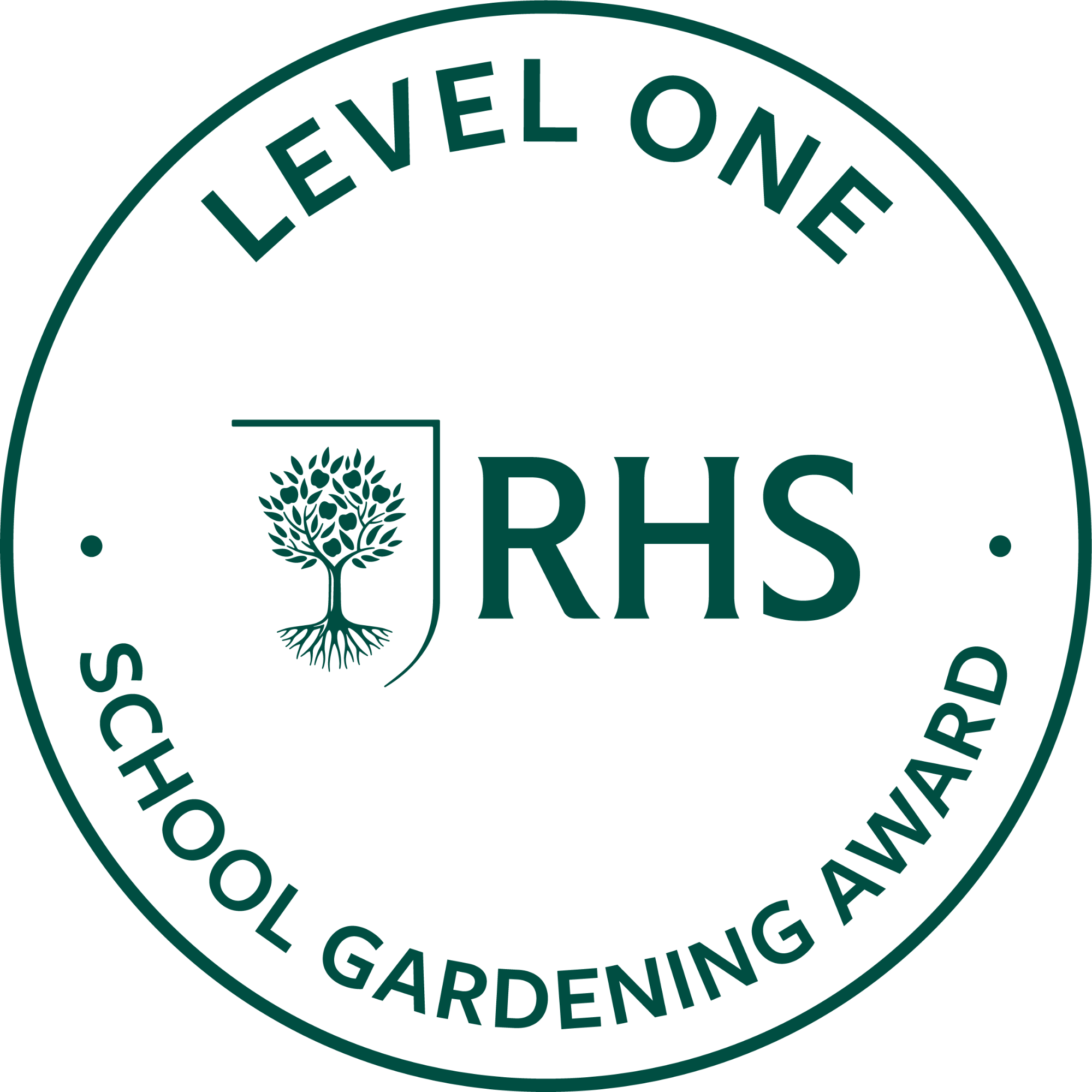English
Overall Intent
The overarching aim for English in the national curriculum is to promote high standards of language and literacy by equipping pupils with a strong command of the spoken and written word, and to develop their love of literature through widespread reading for enjoyment. English is the core of all other subjects.
At St Clement's we intend to develop in our children a love of language both written and spoken that will remain with them into adulthood.
Reading
Intent
St Clement's school has a whole school commitment to the development of reading. We maintain a love of reading and a passion for the development of skills throughout our school, so children become fluent and excited readers ready for secondary school.
Implementation

Read Write Inc
Reception (EYFS) and Key Stage One pupils are taught early reading and writing skills explicitly through structured daily sessions as part of a Systematic, Synthetic Phonics (SSP) programme called Read Write Inc. This approach ensures consistently strong phonics results for our pupils.
Staff have benefited from high-quality training and, as a result, they are highly skilled in delivering this extremely effective programme that systematically builds upon what pupils already know. Pupils do not move on through the programme until they have successfully embedded their learning. To support their progress in early reading, we use decodable books as a way of establishing phonic decoding. Formative assessment is constantly used to assess children’s progress, identify learning gaps and target next steps.
Writing
Intent
All children are provided with many opportunities to; develop and apply their writing; to plan, revise and evaluate their writing, focusing on developing on both transcription and composition. They will also develop an awareness of the audience, purpose and context, and an increasingly wide knowledge of vocabulary and grammar. We aim for all pupils to leave school being able to use fluent, legible and speedy handwriting.
Implementation
At St Clement's, writing begins from a very early age - as soon as a child can mark make. Gross and fine motor skills are developed through our provision within the reception class (EYFS), ensuring all children are developmentally prepared to form letters correctly (taught in Read Write Inc).
In reception, writing is introduced primarily through oral storytelling and discussion. We also use Drawing Club to open up the magic world of tales and stories to children whilst at the same time enriching their language skills and developing their fine motor skills.
In Key Stage 1 and 2, children write in various genres for a range of purposes. They analyse the model text and unpick the grammatical features and organisation, in order to apply these in their own writing.
Throughout, all year groups, we teach writing through engaging and challenging texts. This supports them in the application of vocabulary and structure.
Spelling
Intent
Learning how to spell is a useful lifelong skill. Correct spelling makes a child's work easier to read and understand, and children themselves take pride in being able to spell words accurately. If children are confident in their ability to spell, they are more likely to use more ambitious vocabulary in their writing rather than avoiding less familiar words simply because they are unable to spell them.
Implementation

We use the Spelling Shed spelling programme to teach spelling from Years 1-6. This is an engaging programme which teaches children the rules and patterns of spelling; there is also a focus on irregular spelling patterns which need to be memorised. Pupils are taught spelling in short sessions throughout the week.




